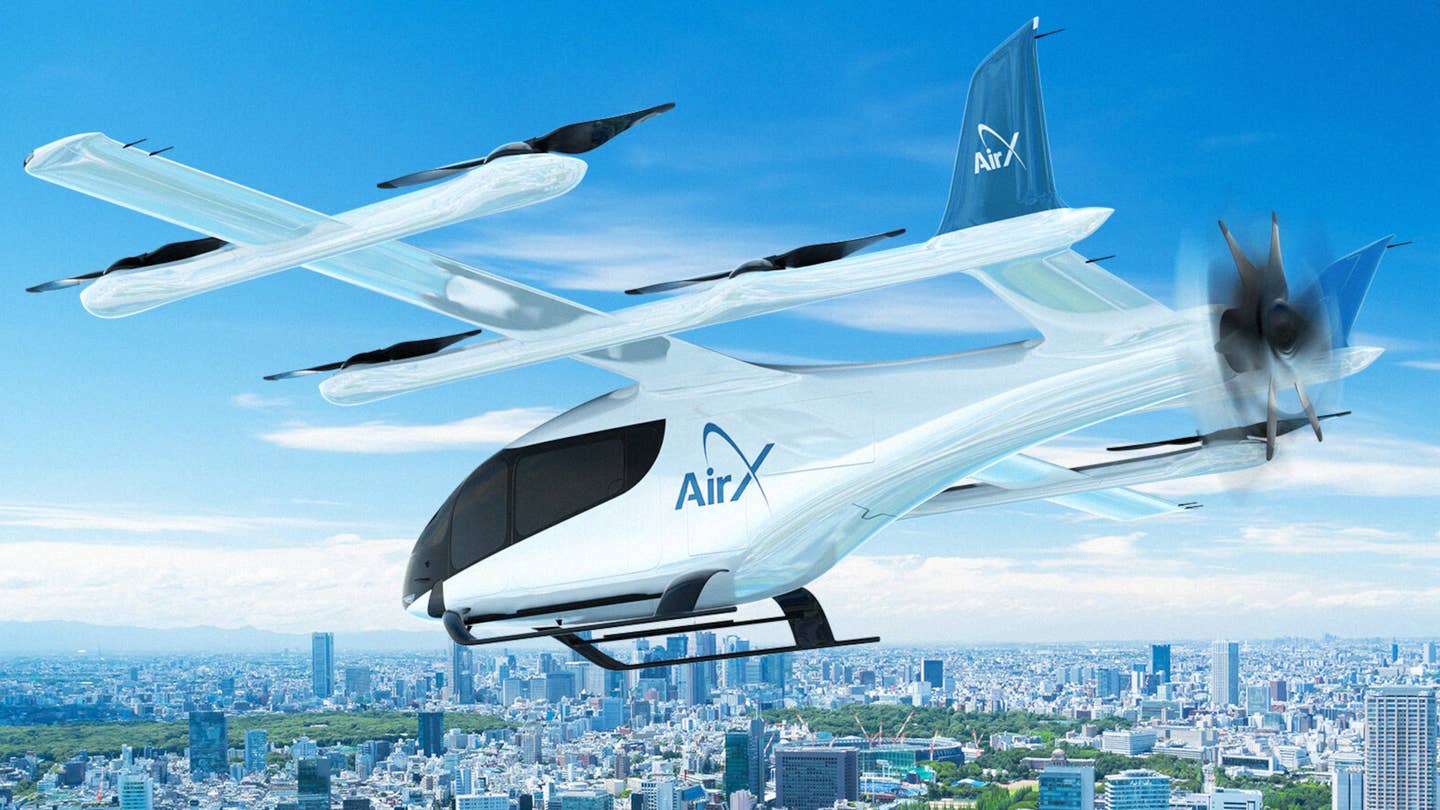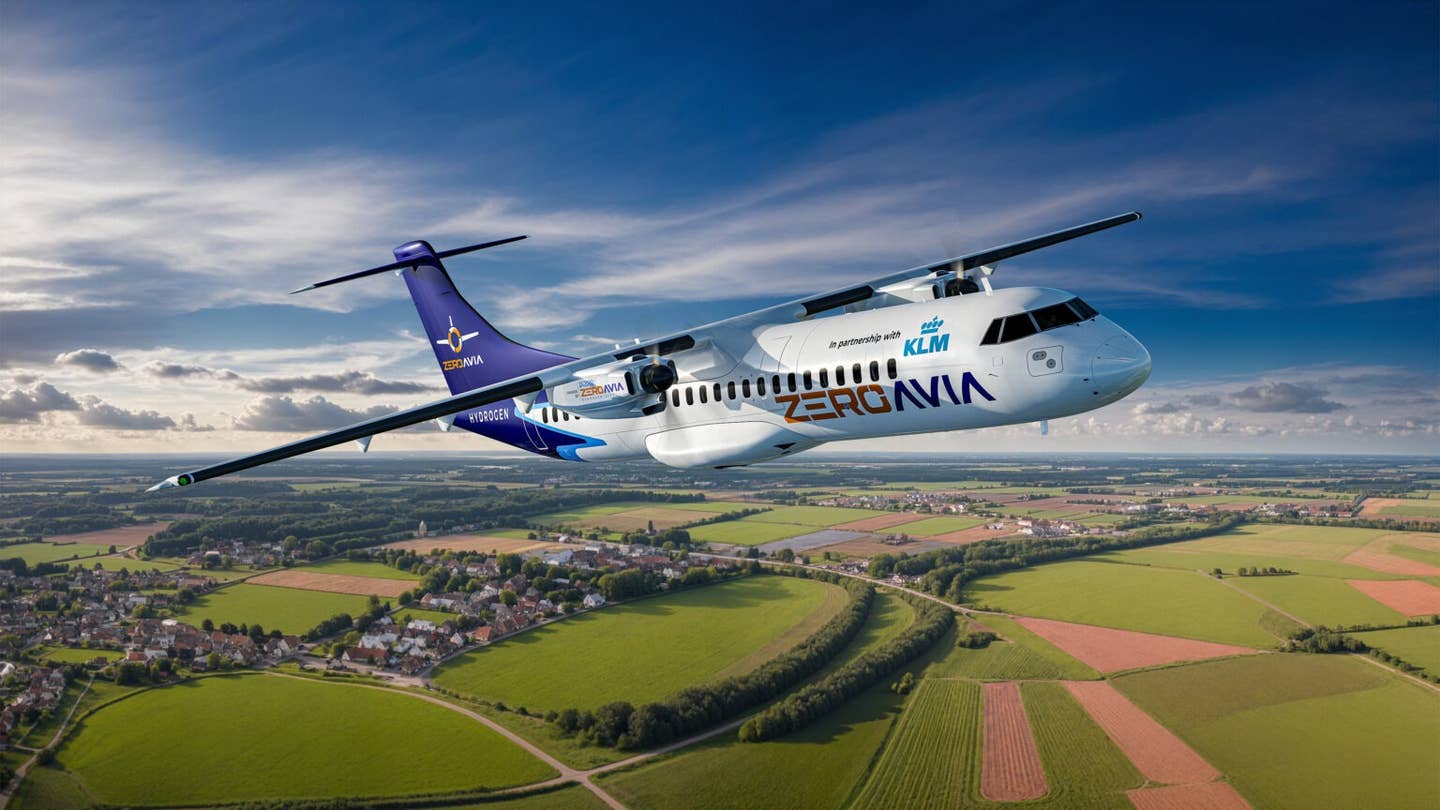Eve Receives Order For Up to 50 Electric Air Taxis From Japan’s AirX
AirX also becomes the Brazilian manufacturer’s first services and operations solutions and Vector software customer in Japan.

Japan’s AirX signed a letter of intent to purchase up to 50 Eve Air Mobility eVTOL air taxis. [Courtesy: Eve Air Mobility]
The electric vertical takeoff and landing (eVTOL) air taxi arm of aviation manufacturing titan Embraer says it now has letters of intent (LOI) for nearly 3,000 aircraft.
Eve Air Mobility, the manufacturer of a five-seat eVTOL design, on Wednesday signed an LOI with AirX—a Japan-based digital platform which primarily provides helicopter charter services—for the purchase of up to 50 Eve aircraft, as well as the manufacturer’s urban air traffic management software, called Vector, as AirX expands into electric air taxis. The agreement includes 10 firm aircraft orders and 40 options.
AirX also becomes Eve’s first services and operations solutions customer in Japan. Accordingly, Eve will provide services such as data management and network optimization.
“We appreciate AirX’s trust and confidence in Eve by not only purchasing our eVTOL aircraft, but services and operations solutions and our Vector—the urban air traffic management software,” said Johann Bordais, CEO of Eve. “Japan has been progressive in their approach and interest in eVTOL operations, and we look forward to continuing to expand our relationships as we support Japan’s urban air mobility [UAM] objectives going forward.”
Notably, AirX also has a relationship with EHang, the Chinese eVTOL manufacturer that in October earned the industry’s first type certification.
The companies last month opened a UAM center in Tsukuba, Japan, the first such facility in the country. The center will serve as a maintenance base and site for demonstration flights, but AirX plans to one day operate aerial sightseeing tours out of the location using EHang’s EH216-S. It will be open to both helicopters and eVTOL aircraft.
However, AirX also sees utility for Eve’s air taxi, as well as other benefits that come from working with the manufacturer.
“We are deeply impressed not only by Eve’s technological capabilities, but also by their commitment to building an ecosystem,” said Kiwamu Tezuka, CEO of AirX. “Our aim is to revolutionize the current industry, making transport services useful and affordable for everyone.”
Eve’s aircraft is a lift-plus-cruise design for up to four passengers and a pilot. In the future, the company plans to produce a self-flying model for six passengers. Eight propellers are dedicated to vertical flight, while fixed wings handle cruise—it has no moving parts, unlike the designs of competitors such as Joby Aviation and Archer Aviation.
The manufacturer is relying on a litany of suppliers—including Honeywell, Thales, Garmin, and BAE Systems—to provide components for the air taxi, such as electric propulsion systems, flight controls, avionics, and seats.
The model has an expected range of 60 sm (52 nm). Eve claims it will produce a 90 percent lower noise footprint than equivalent helicopters, as well as 90 percent less carbon dioxide compared to cars.
Eve has already begun assembly of an initial full-scale prototype at its first eVTOL production plant in Taubaté, São Paulo, Brazil, announced by Eve and Embraer in July. The build is expected to be followed by a test campaign later this year, with a commercial launch scheduled for 2026. In December, the manufacturer received proposed airworthiness criteria from Brazil’s aviation regulator: a key step toward type certification.
The air taxi is orchestrated by Eve’s Vector software, an agnostic platform designed to accommodate a range of eVTOL designs. AirX is the latest Vector customer, but Eve has several orders lined up for the technology.
According to the company, following the AirX agreement, it also has letters of intent for nearly 3,000 aircraft. Southeast Asia is shaping up to be a key market for Eve, which in February began a study to gauge the infrastructure requirements of launching service in the region. Outside Japan, it has customers and operating partners in Australia, South Korea, India, and elsewhere.
Eve will not operate the aircraft itself, but it will assist partners as they build out UAM ecosystems comprising vertiports, electric charging infrastructure, flight routes, and other features.
The manufacturer also intends for its air taxi to fly in the U.S. out of the San Francisco Bay Area, in partnership with United Airlines.
Like this story? We think you'll also like the Future of FLYING newsletter sent every Thursday afternoon. Sign up now

Subscribe to Our Newsletter
Get the latest FLYING stories delivered directly to your inbox






